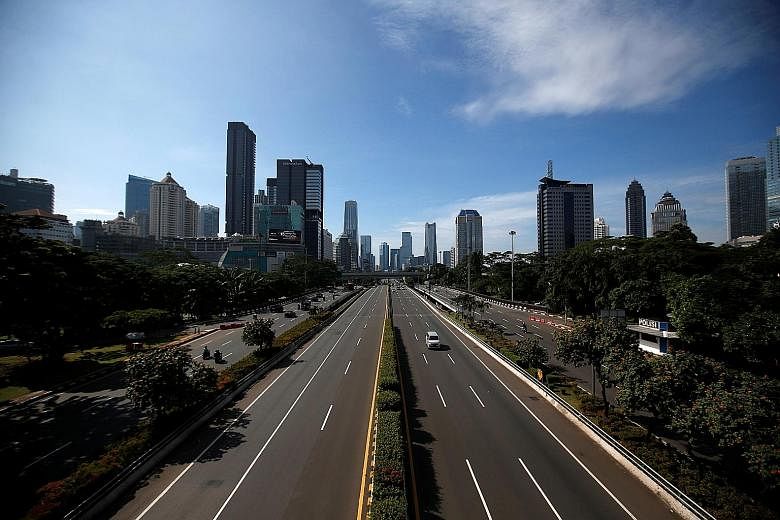From tomorrow, all foreign nationals will be banned from visiting or transiting Indonesia, after the government declared a public health emergency to try to curb the spread of the coronavirus.
The ban will remain in place until the crisis is over.
"President (Joko Widodo) sees that our current policy needs to be made stricter. We have decided that all visits and transits by foreign nationals to Indonesia will temporarily be banned," Foreign Minister Retno Marsudi told reporters yesterday morning, after Mr Joko met his ministers via video conference.
Those with work permits as well as diplomats will be among those exempted from the ban, Ms Retno added, although she stressed that proper health protocols would still apply.
Before the meeting, Mr Joko said Indonesia was stepping up measures to limit the movement of its citizens within the country, while noting that the threat of the coronavirus also came from overseas.
He pointed out that the United States and Europe are now the epicentres of the pandemic.
In Indonesia, the capital Jakarta has been the worst hit, accounting for about half of the 1,528 confirmed cases in the country.
Indonesia's number of deaths from Covid-19, the respiratory disease caused by the coronavirus, has hit 136, the highest in South-east Asia. The number of recovered patients stood at 81, up by six within 24 hours.
Ms Retno said: "Practically all nations have put in place limits on the flow of travellers, with varying (degrees of) strictness depending on the respective situation and condition in each country."
Their policies have also impacted Indonesians living overseas, many of whom have recently returned home or are preparing to do so, she added.
The foreign minister said the two largest groups of homebound Indonesians were migrant workers in Malaysia and those working as crew on cruise ships.
"The inflow traffic from these two groups has been far larger than normal," Ms Retno said.
"In terms of size, the number of Indonesians living and working in Malaysia exceeds one million. And there are 11,838 Indonesians working for 80 cruise ships, as per data gathered so far," she added.
Ms Retno said the government was implementing proper health protocols at airports, seaports and border checkpoints for these returning countrymen.
Yesterday, Mr Joko passed a set of new regulations that came into immediate effect, including a 405.1 trillion rupiah (S$35.4 billion) increase in the state budget to cater to exigent expenses such as spending on health equipment.
In a televised address, Mr Joko disclosed that he had signed a Perppu - a presidential emergency decree - to ensure stability of the financial system.
When a Perppu is issued, it becomes effective immediately and is treated as legally binding, circumventing the long process of legislating through Parliament.
Of the additional funds to be provided in the state budget, 75 trillion rupiah has been earmarked for the purchase of testing kits, reagents, personal protective equipment and masks, among other health-related expenditures.
Another 110 trillion rupiah will be used to provide a social security net, 70.1 trillion rupiah will go towards fiscal incentives and credit for businesses, and 150 trillion rupiah for economic recovery.
The new regulations will allow the government to widen the 2020 budget deficit to 5.07 per cent of gross domestic product for the next three years, compared with the normal threshold of 3 per cent.
In addition, Mr Joko declared a public health emergency in Indonesia through a Keppres - a presidential decree that enables the implementation of civil emergency measures - as well as a PP, a government regulation that lays out the guidelines for "large-scale social distancing".
The regulations are intended to contain the spread of Covid-19 at the provincial, regency and city levels through coordinated efforts with the central government's virus task force.
Details on the exact measures to be taken as part of the regulations have not been revealed yet.

